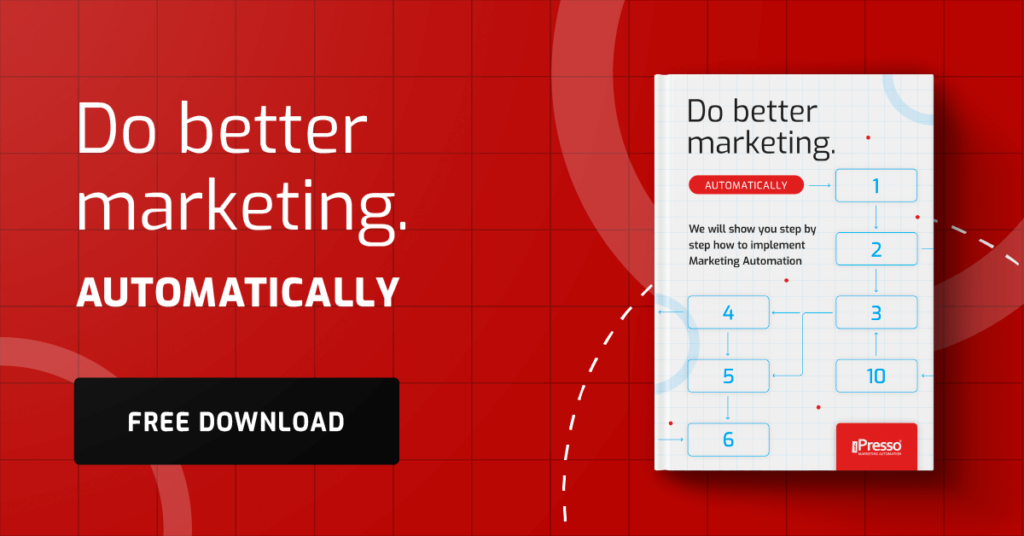How long does it take to implement marketing automation?

Implementing marketing automation and the time needed to finish this process differs depending on what features you need and how large your company is. In this post, we will analyze three different scenarios and show how long it can take to implement marketing automation in three different companies. We will also mention factors you need to take into consideration when deciding how long implementing MA can take in your company.
Implementing marketing automation can vary significantly based on the complexity of the project, the tools involved, and the company’s structure. While there’s no one-size-fits-all answer, it’s essential to consider different scenarios and the factors that influence the timeframe of such a project.
Scenario 1: A small business with basic needs
Small businesses usually don’t need advanced MA solutions. They typically need to automate just a few key processes, such as customer segmentation, personalized product recommendations, and marketing automation. In such a situation, the implementation process is usually quick and takes one or two weeks.
However, it can differ depending on the circumstances. For instance, if you are a small business but have a large and disorganized dataset consisting of both your customers and vendors, you’ll have to spend some time first getting your database in order. The other thing you need to consider is your team. Do you have someone on your team who is proficient in IT matters? Or maybe you need to train someone to manage your marketing automation platform for you – training also takes time and needs to be calculated in the overall implementation time.
Lastly, one more question to consider is content. Let’s use email marketing as an example – every email requires a template that will be customized to every recipient. Do you have such templates ready, or do you need to create them from scratch first? Again, it’s something that can take some time to complete.
Scenario 2: A mid-sized company
For a mid-sized company, the process of implementing marketing automation is more complex, primarily because such companies want to automate more things and processes. In this scenario, we often need to take more elements into account:
- Multiple tools and features
- Third-party integrations (e.g., with a CRM or ERP system)
- The need to automate several channels, such as email, text messages, and on-site communication.
Here, you need to devote a month or two to get everything up and running. Third-party integrations can take a lot of time. It is likely your company already has some marketing/sales tools in place. Implementing marketing automation will require integrating those tools with your MA platform. All is good if those tools use API. If not, you’ll need to spend more time creating a tailor-made integration.
In mid-sized companies, data preparation is also an important question, as companies deal with larger datasets and historical customer data from multiple sources. Cleaning, deduplicating, and formatting the data could take up to several weeks, especially if your company has been tracking customer interactions across multiple touchpoints for years.
Content creation is also something to consider. Mid-sized companies often have at least a small marketing team, which allows for more flexibility when it comes to content strategy. However, you will probably need to spend some time creating various types of content for different audience segments, along with variations for different channels. Consider the following types of content:
- Blog posts
- Email marketing sequences
- Push notification/SMS sequences
- Landing pages
- Social media posts and ads
There is one more thing to consider – larger teams often require cross-departmental cooperation. You will need to integrate the work of your marketing, IT, sales, and customer service teams, and this stage alone can take some workshops, training, ongoing support, and, obviously, time.
Lastly, in a mid-sized company, testing becomes important. This stage requires conducting test programs, extensive A/B tests across email sequences, or testing different ad campaigns on social media or Google.
Scenario 3: A large enterprise
Enterprises looking to implement marketing automation from scratch require a much longer timeline, usually around six months (and longer). Such companies need to consider several important aspects of implementing marketing automation. Let’s have a look at them:
Customizability
Large corporations frequently require enterprise-level tools and customizability. While, naturally, such tools are available on the market, they typically come with a complex implementation process that requires ongoing IT involvement and some planning, too. The time needed to fully implement and configure such a system can take even more than a month.
Data architecture
Large corporations usually deal with huge data volumes and types. Oftentimes, data is spread across different channels, regions, departments, and IT systems. Implementing marketing automation in such an environment will likely require creating or improving the whole data architecture.
Team collaboration
Large, international corporations have multiple teams spread around many countries and regions. Imagine getting 10 different marketing departments to work together. And then add 10 IT departments, 10 customer service departments, and 10 sales departments. We’re talking here about hundreds of people! Getting all of them to work together will require a lot of planning and systemic work that can stretch to weeks if not months.
Many language versions
Things are relatively easy when you and your customers use just English. However, international companies usually require several language versions, which means localized campaigns and communication flows as well as compliance with regional regulations. And then, we have additional customizations for customer preferences, which can differ significantly between countries and regions!
A lot of testing and legal work
Large enterprises must invest heavily in testing, not only to ensure that the system is functioning as expected but also to ensure compliance with data privacy regulations in various regions. This usually requires the involvement of the legal department(s), which, that’s right, can take a lot of time.
Change management
You can’t expect to implement everything overnight. In a large corporation, everything takes time and change management. This involves training and educating employees. You will most likely need to organize at least several workshops and perhaps some e-learning modules to ensure that everything works correctly and everyone involved needs how to use this new marketing automation platform.
Wrapping up
As you can see, implementing marketing automation can be quick and relatively simple if you run just a small business. In a large, international company, you’ll need at least half a year to get everything running. But it’s certainly worth the effort. Automating even a small part of work in a multinational business will help you save tens of thousands of dollars and hours of work every month!
And if you’re currently looking for a marketing automation platform for your business, we invite you to consider iPresso! Our platform works well with both SMEs and large enterprises!



